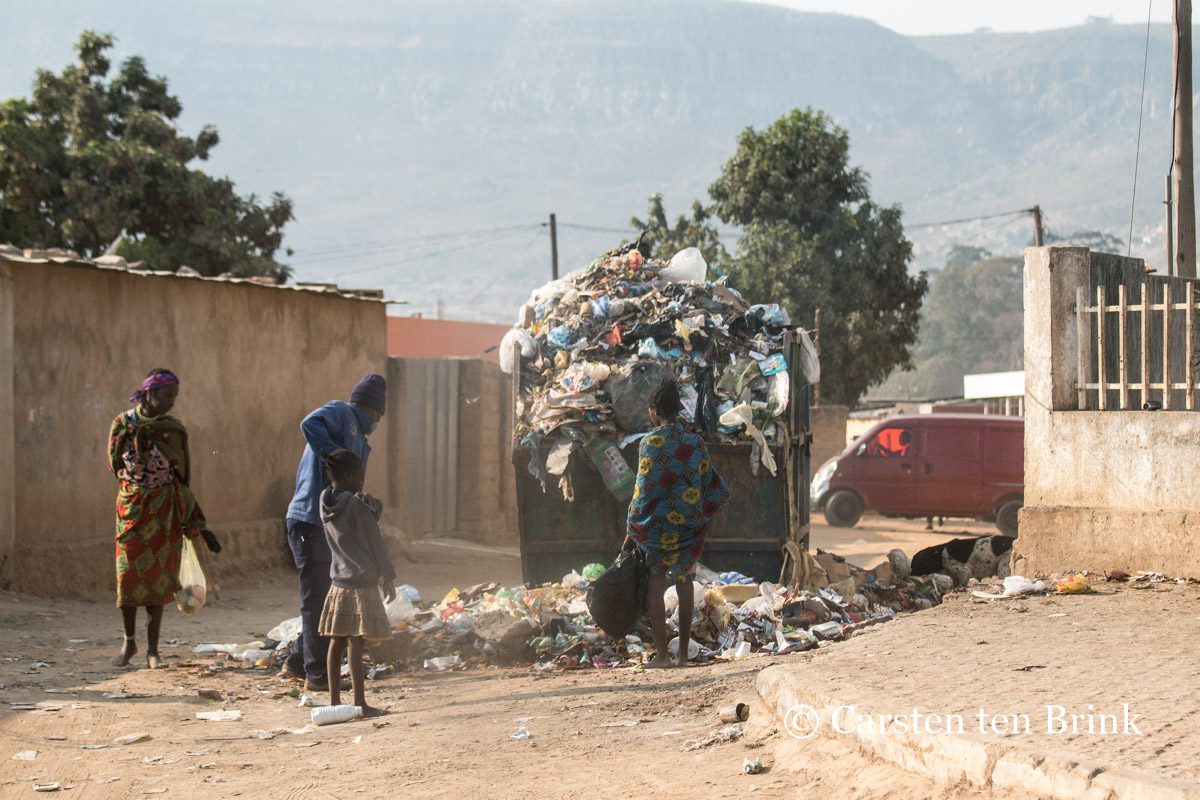
For decades, wealthy nations have transported plastic trash, and the environmental problems that go with it, to poorer countries, but researchers say they have found a potential bright side to this seemingly unequal trade: plastic waste may provide an economic boon for the lower-income countries.
In a study published in the Journal of World Systems Research, Yikang Bai of Washington State University and Jennifer Givens of Utah State University analyzed 11 years of data on the global plastics trade against economic measures for 85 countries. They claim to have found that the import of plastic waste is associated with growth in gross domestic product per capita in the lower-income countries.
“Our study offers a nuanced understanding of the global trade in plastic waste,” said Bai, a recent WSU Ph.D. graduate and lead author on the study. “Media coverage often has a narrative that developed countries shift environmental harms to less developed countries. There’s another layer of the story: plastic waste could be used as a resource first, even though ultimately it could still add to the environmental burdens of less-developed countries.”
The authors emphasized that plastic waste is still a big problem, especially for developing countries, as most does not get recycled and even plastics that are recycled still ultimately end up negatively affecting the environment. This study only indicates that some plastic waste is being purchased and repurposed before being thrown away.
For the study, Bai and Givens analyzed data from the United Nations and the World Bank looking at several economic variables as well as trade information on common plastic wastes such as polyethylene and polystyrene, also known as #1 and #2 plastics respectively. They analyzed data on 45 high-income countries mostly found in the Global North, including European countries and the United States – and 40 lower income countries which are mostly found in the Global South such as Botswana, El Salvador and Vietnam.
The data ranged from 2003 to 2013, allowing the researchers to conduct a longitudinal analysis–showing change over time–which can reveal a strong connection among the measures. While they found an association between economic benefits and plastic waste imports in the lower income countries, for the high-income countries there was no association between importing waste and economic growth.
While the study did not assess exactly how the plastic waste was being used in the developing countries, the authors note that it is likely they are recycling some of the plastic for use in industry and manufacturing. There was also some evidence that the lower-income countries were trading the plastic waste among themselves regionally.
“Most plastic doesn’t get recycled – that’s important to keep in mind,” said Givens, a USU assistant professor of sociology. “A lot of plastic waste ends up in landfills or in the environment, so maybe it’s a silver-lining that importing plastic waste is associated with economic development in developing countries. At least they are recycling some of it and not using virgin materials because plastics are made from fossil fuel chemicals.”
The researchers emphasized that there is a lot of complexity in global trading of plastic waste. In the future, they plan to investigate the regional trade among countries as well as changes in more recent years, especially in light of the fact that China stopped taking plastic waste imports in 2018.
Even with the economic benefits of importing plastic waste, reducing environmental harm from plastics would still likely require changes from both high-income countries and lower-income countries, especially high-income countries, said Bai.
“Some people might argue that developed countries need to create more ways to better process plastic waste domestically, instead of looking for other destinations for plastic waste overseas,” he said. “The way we recycle plastic waste varies greatly across the United States. Some communities may do it well, but in others, there is still room for improvement. Producing and using less plastic would be another way to reduce environmental harms.”







